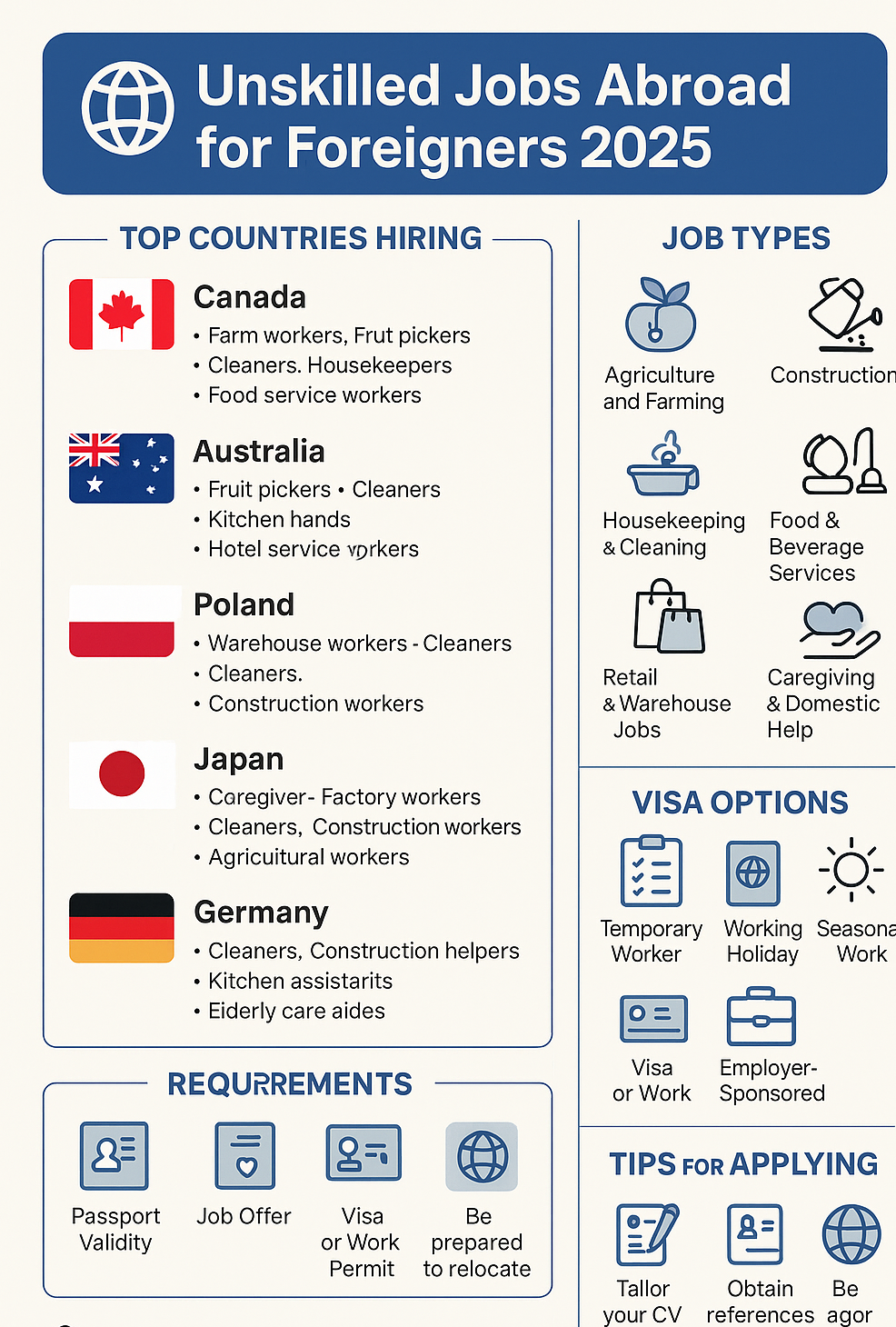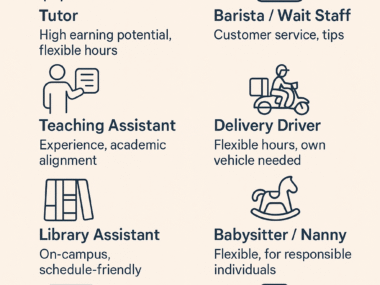Germany is a global economic powerhouse and a popular destination for job seekers, offering opportunities in both technical and non-technical fields. However, like many other nations, Germany is currently experiencing a recession and inflation driven by global factors such as the aftermath of COVID-19 and geopolitical conflicts like the Russia-Ukraine war. Despite these challenges, there are still many sectors that continue to thrive and offer exciting job prospects.
In this article, we’ll explore job opportunities in Germany for both tech and non-tech workers, covering key industries, how to find jobs, and how to apply for visa sponsorship.
Current Job Market in Germany: Impact of Recession
Germany, like many Western countries, is facing economic downturns due to global challenges. This has led to a reduced demand for certain job roles, particularly in industries that rely heavily on global supply chains and consumer demand, such as manufacturing and retail. However, some sectors remain largely unaffected and even continue to grow, offering significant opportunities for both local and foreign talent.
The key takeaway? Recession or not, Germany continues to face labor shortages in several critical sectors. Let’s explore which industries are still in demand and how you can tap into these opportunities.
Tech Job Opportunities in Germany
Despite the current economic challenges, Germany’s tech sector continues to offer abundant job opportunities, particularly for skilled workers. The demand for software engineers, data scientists, and IT professionals remains high. Whether you’re a full-stack developer, mobile app developer, or backend engineer, there are job openings in Germany that require your expertise.
Here are some tech roles that are particularly in demand:
- Software Engineers
Software engineering is a booming field in Germany, with demand for full-stack developers, backend engineers, and front-end developers. Companies are looking for individuals skilled in languages like Python, Java, and JavaScript, as well as those experienced in frameworks such as React and Angular. - Data Scientists and Engineers
Data professionals are crucial in today’s data-driven world. Roles in data science, machine learning, and artificial intelligence are growing, particularly in cities like Berlin and Munich. Python proficiency, along with knowledge of SQL, TensorFlow, and big data technologies, can open doors to many opportunities in these fields. - Cybersecurity Specialists
With increasing digital transformation, the need for cybersecurity experts is on the rise. Cybersecurity roles include network security engineers, penetration testers, and compliance analysts. - DevOps Engineers
DevOps, the practice of unifying software development and operations, is another area experiencing growth. If you have expertise in continuous integration/continuous delivery (CI/CD) tools, cloud infrastructure, and automation, you’ll find a wealth of opportunities. - Technical Writers
Companies are looking for technical writers to document new products, APIs, and services. While technical knowledge is required, this role can be an entry point for those transitioning from non-technical backgrounds into tech fields. - Prompt Engineers and AI Developers
With the rise of AI technologies, there’s an increasing need for professionals who can work in areas such as AI, machine learning, and Internet of Things (IoT). If you have experience with algorithms, deep learning, and natural language processing, this field is ripe with opportunities.
Upskilling in Tech
If you’re not currently working in tech but want to transition into this high-demand industry, there are numerous ways to upskill. Online platforms such as Coursera, edX, and Udemy offer courses in coding, data science, and AI. Bootcamps like Le Wagon and Ironhack are also available in Germany and provide immersive programs that can prepare you for a career in tech.
Non-Tech Job Opportunities in Germany
While the tech sector gets much attention, Germany’s non-tech sectors are just as critical and often have labor shortages. From healthcare to skilled trades, there are many job openings for those with the right skills.
1. Healthcare Jobs
One of the most pressing labor shortages in Germany is in healthcare. As of today, there are thousands of unfilled nursing positions, and this trend is expected to worsen by 2030. Germany’s healthcare system is struggling to meet demand, especially when it comes to nursing, dental care, physiotherapy, and specialized medical fields.
If you are a healthcare professional, such as a nurse, physiotherapist, or doctor, there is a significant demand for your skills. Germany is also welcoming foreign healthcare workers, offering visa sponsorship and various relocation support programs to fill these roles.
2. Skilled Trade Jobs
Germany highly values vocational training, and the demand for skilled trades is particularly high. Carpenters, electricians, plumbers, and other tradespeople are in constant demand. The country is experiencing a labor shortage in these fields due to an aging workforce, with many workers nearing retirement age.
Germany has launched government-backed initiatives to promote skilled trade professions, including apprenticeship programs and recognition of foreign qualifications. If you are a tradesperson with vocational training, you’ll find plenty of opportunities in Germany.
3. Education and Teaching
Germany also needs teachers, particularly in subjects like mathematics, science, and foreign languages. Additionally, agricultural jobs, such as farm laborers and agricultural workers, are in demand, especially during harvest seasons. For those interested in education or agriculture, there are ample job opportunities across the country.
4. Supply Chain, Business, and Management Roles
Even though some sectors are affected by the recession, there is a continued need for roles in supply chain management, accounting, human resources, and marketing. With companies adapting to new challenges in a globalized world, professionals in business administration and management are in demand.
Germany’s commitment to sustainability and innovation has also driven growth in green industries, leading to job creation in sectors like renewable energy and sustainable agriculture.
5. Customer Service and Sales Roles
The need for English-speaking customer service representatives, especially in multinational companies, is growing. These roles are typically found in sectors such as telecommunications, e-commerce, and financial services. If you have strong communication skills, there are many positions open for customer service and sales professionals.
How to Find Jobs in Germany
So, where should you begin your job search in Germany? Here are a few helpful resources to start your journey:
- Make It in Germany
This is an official portal provided by the German Federal Ministry that offers information on job opportunities, visa requirements, and more. It’s a great place to find non-technical and technical jobs alike. - Bundesagentur für Arbeit
Germany’s official employment agency provides job listings, career advice, and information on the German labor market. - Online Job Portals
Websites like LinkedIn, Indeed, Glassdoor, and StepStone are also valuable resources for finding job openings across various industries. - Immigration Forums
Online communities such as Expat Forum and ImmigrationBoards.com offer firsthand experiences and advice on working in Germany. These forums can be particularly helpful for navigating the visa application process and learning more about the job market from those who’ve already made the move.
Visa Sponsorship and Relocation Support
Germany offers a variety of visa options for skilled workers, including the EU Blue Card, which allows highly qualified professionals to live and work in the country. Companies across various industries are also offering visa sponsorships and relocation support to attract foreign talent.
If you’re looking for jobs with visa sponsorship, here are some German companies that are currently offering relocation packages:
- SAP
As a global software company, SAP frequently hires international tech talent and offers visa sponsorship. - Siemens
Siemens offers roles in both tech and non-tech fields and provides relocation assistance for international hires. - DHL
A leader in logistics, DHL offers jobs in customer service, supply chain management, and business development, with relocation support available. - Volkswagen
This automotive giant offers engineering roles and other technical jobs, along with visa sponsorship for skilled workers. - Bosch
Bosch, a leading technology and services company, hires professionals in areas such as engineering, IT, and supply chain management, with support for international employees.
Conclusion
Germany is still a land of opportunity for both tech and non-tech workers. Despite the global recession, there are sectors like healthcare, skilled trades, and IT that remain resilient and offer excellent job prospects. By upskilling, researching job portals, and leveraging Germany’s visa sponsorship programs, you can find your path to a fulfilling career in this diverse and dynamic country.
Remember, success in Germany’s job market requires persistence, planning, and preparation, but with the right approach, you can secure your dream job and build a promising future.



